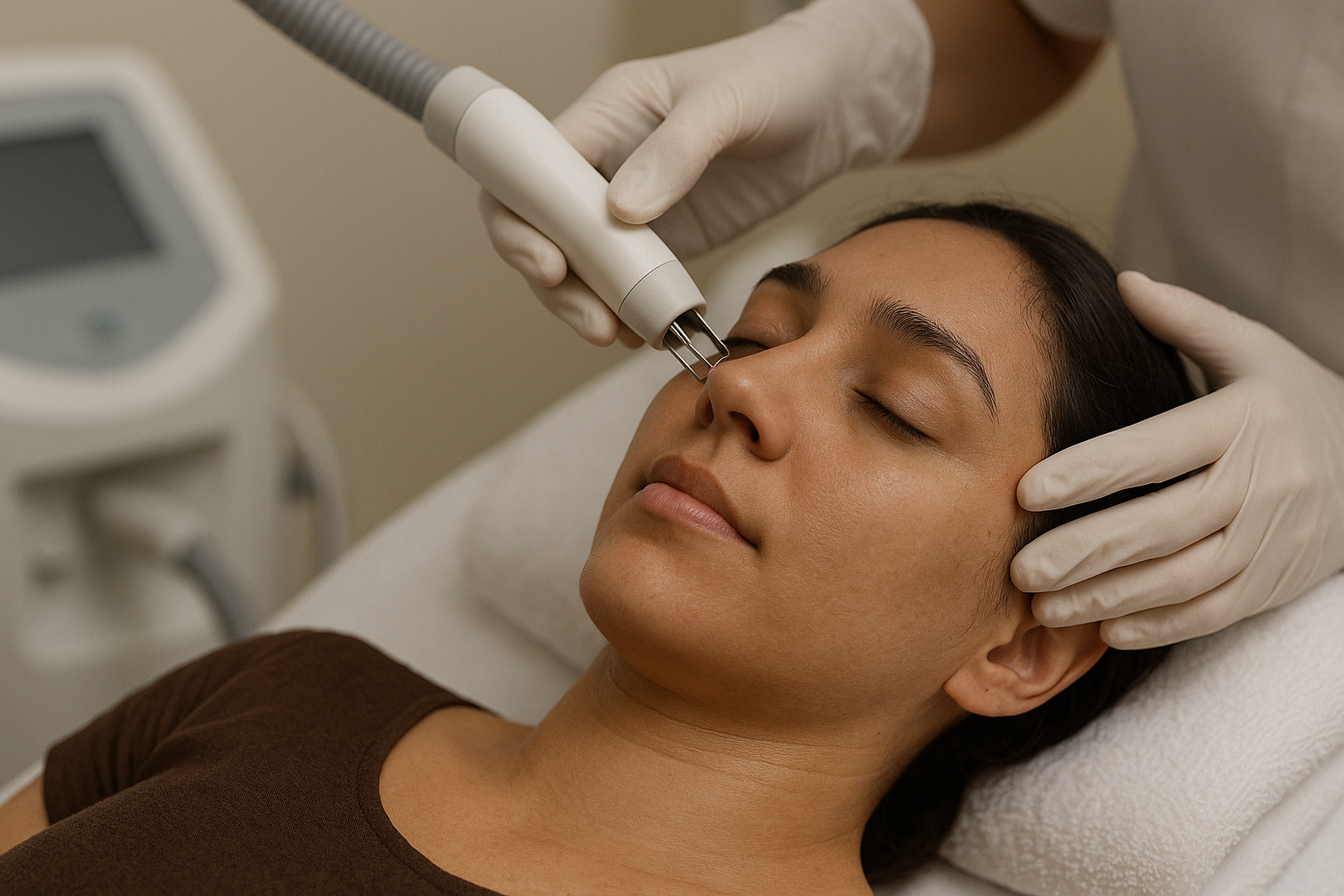Introduction to Skin Infections
Skin infections happen when harmful bacteria, viruses, or fungi invade the skin. This can cause inflammation, redness, swelling, pain or pus. This can occur through cuts, wounds, abrasions or bites and it can also occur in moist area where skin rubs together. Infections can occur in areas with poor blood supply and occur when the immune system is weakened by another disease or medical treatment. Bacteria, viruses and fungi cause infections by entering the body and multiplying. The body’s immune system responds by sending white blood cells and antibodies to fight the infection. Common skin conditions like acne, eczema, psoriasis, contact dermatitis, rosacea and skin cancer can significantly impact health by causing discomfort, affecting self-esteem and sometimes leading to complications. Regencare’s dermatology provides advanced skin problem solution through regenerative medicine based approaches for skin regeneration.
Types of skin infections and symptoms
- Bacterial skin infection: These are like impetigo and cellulitis are contagious infections caused by bacteria entering the skin through a break, often presenting as red, sore patches with potential pus-filled blisters, and are usually treated with topical or oral antibiotics.
- Symptoms: It usually begins after 1-3 days after the infection. The sores are often itchy, but usually not painful. Sores begin as small red spots on face, around the mouth and nose and anywhere in the body.
- Viral skin infection: These are like warts, herpes simplex, and shingles. They cause an outbreak of a painful rash or blisters on the skin.
- Symptoms: An itching, tingling or burning feeling in an area of your skin. Redness in skin in the affected area. Raised rash in a small area of the skin.
- Fungal skin infection: These are Athlete’s foot, ringworm, and jock itches are all fungal infections that are also known as tinea infections. They are contagious and can be treated with anti-fungal creams, shampoos or medications.
- Symptoms: There will be asthma-like symptoms. Some may have fatigue and headache. Muscle aches or joint pains are commonly seen symptoms.
- Parasitic skin infections: These are scabies; pediculosis and creeping eruption are all parasitic skin infection.
- Symptoms: Intense itching, threadlike tracks on your skin and sometimes a rash.
Causes and risk factor
- A weakened immune system, poor hygiene practices and injuries all contribute to infections by providing an easier pathway for pathogens to enter the body and establish themselves. When these factors are present, the body has a harder time defending itself against harmful bacteria and viruses.
- People are more prone to fungal, bacterial or viral infections when they have a weakened immune system, which can be cause by factors like existing illness, certain medications, age, recent surgeries, stress or poor nutrition which makes harder for their body to fight off invading microbes.
- Transmission refers to the way germs infect a susceptible person skin-to-skin. Inhalation occurs when germs are aerosolized in tiny particles that may be transmitted through air over greater distances and for a longer time.
- Understanding different skin conditions involves recognizing how both genetic predisposition and lifestyle factors interact to influence skin health.
Diagnosis And When To See A Dermatologist
- A dermatologist diagnoses skin infections primarily through a physical examination, where they assess the appearance of the affected area, ask about symptoms and may take a skin sample to send to a lab for culture to identify the specific bacteria, fungus, or parasite causing the infection.
- When one have a skin problem that is persistent, unusual, painful, rapidly changing, covering a large area of your body or includes symptoms like bleeding, sores or unusual growths.
- Dermatologist offering regenerative therapy, non-surgical treatments for various skin infections. The recommended medicine for a skin disease depends on the diagnosis.
- The medications for skin problem can be oral medication, topical treatment, light therapy, hormonal treatment and many more.
Best Treatment For Skin Infection
- Medical treatments: Antibiotics that can treat bacterial skin rashes can be used. Also when choosing the antibiotics for a bacterial skin infection, doctors consider resistance patterns. Anti-fungal creams and oral medications can treat a variety of fungal skin infections. The medication depends up on the severity of the infection. Antiviral drugs that can help treat herpes and shingles can be used. There are many over-the-counter and prescription medications for skin infections.
- Home and natural remedies: Some home remedies for skin infections such as tree tea oil and garlic, have been used as anti-fungal properties. Applying cold compress to skin several times a day will help reduce itching and inflammation. Using apple cider vinegar is one of the best anti-fungal properties to treat and prevent fungal infections. Coconut oil is also used to treat fungal infection like ring worm and yeast infection. These natural remedies helps to remove fungus.
Preventing Skin Infection
- The best hygiene practices to prevent skin infections include; frequent hand washing with soap and water, thoroughly drying skin after bathing, promptly cleaning and covering any cuts or wounds, avoiding sharing personal items like towels and razors and changing cloths regularly, especially after sweating.
- To avoid fungus on skin, always wear shoes in communal areas like showers and locker rooms, thoroughly dry after swimming or showering, especially between toes, avoid sharing personal items and promptly change out of wet cloths.
- To strengthen the immune system to fight skin viruses, one can eat well, exercise, and get enough sleep.
- One can also reduce stress and stay up to date on vaccines. And also to reduce the risk of recurring skin conditions, one can practice good hygiene, avoid irritants and manage stress.
Why Choose Regencare Dermatology?
One can choose Regencare’s dermatology for our advanced regenerative medicine for skin infection which includes cell based therapies, bioengineering skin grafts and other treatments that promoted healing. Dr. Aswathi Mohan, a famous dermatologist MD in dermatology is famous skin doctor in Cochin, Kerala. The doctor assess and examines the infection and different skin condition in patients and approaches on the specific concerns which include regenerative treatment aspects, all designed to address issues like acne, wrinkles, hyper pigmentation, dryness or sensitivity, with a dermatologist guiding the process to ensure optimal result.



